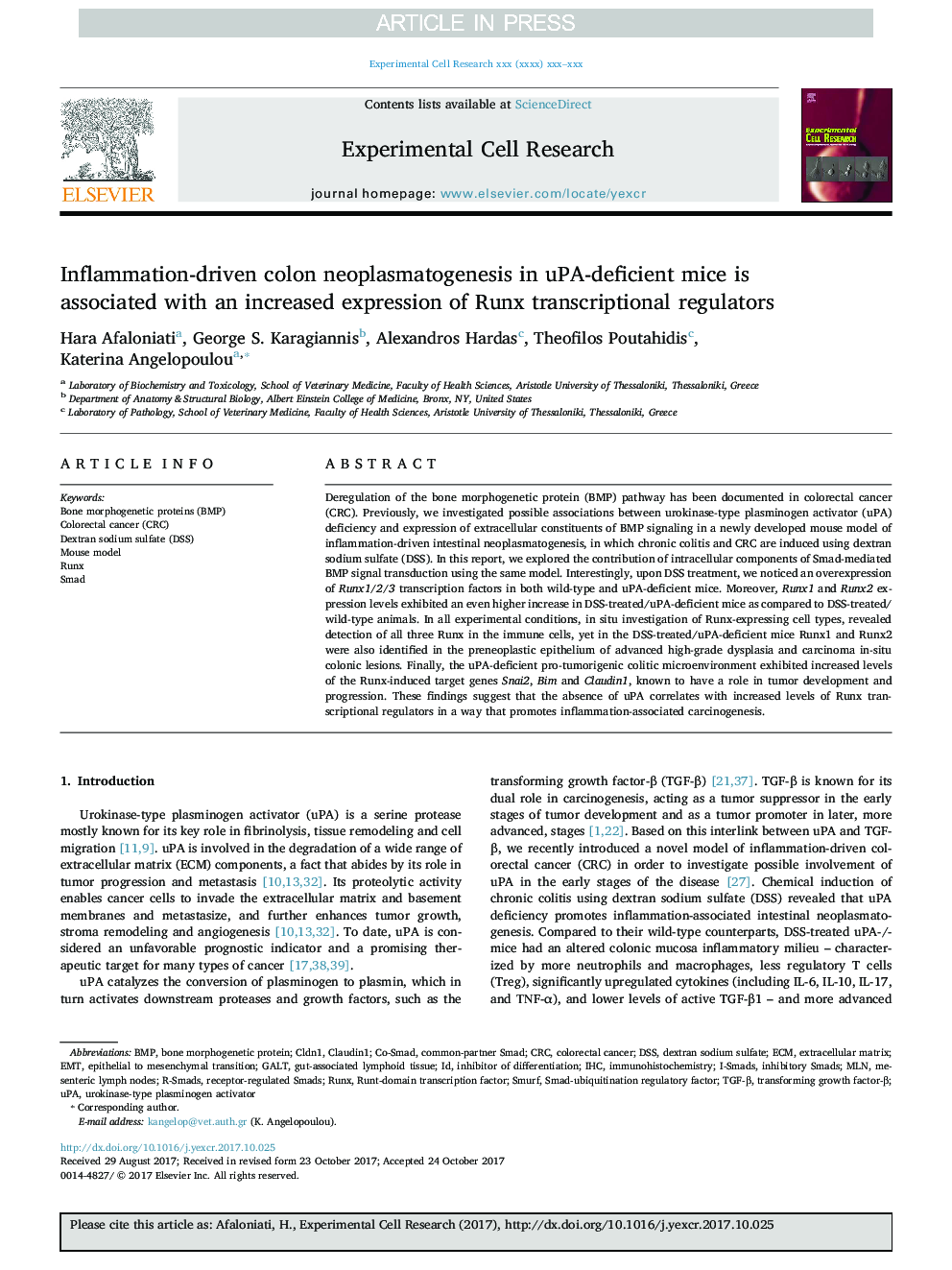| Article ID | Journal | Published Year | Pages | File Type |
|---|---|---|---|---|
| 8451799 | Experimental Cell Research | 2017 | 8 Pages |
Abstract
Deregulation of the bone morphogenetic protein (BMP) pathway has been documented in colorectal cancer (CRC). Previously, we investigated possible associations between urokinase-type plasminogen activator (uPA) deficiency and expression of extracellular constituents of BMP signaling in a newly developed mouse model of inflammation-driven intestinal neoplasmatogenesis, in which chronic colitis and CRC are induced using dextran sodium sulfate (DSS). In this report, we explored the contribution of intracellular components of Smad-mediated BMP signal transduction using the same model. Interestingly, upon DSS treatment, we noticed an overexpression of Runx1/2/3 transcription factors in both wild-type and uPA-deficient mice. Moreover, Runx1 and Runx2 expression levels exhibited an even higher increase in DSS-treated/uPA-deficient mice as compared to DSS-treated/wild-type animals. In all experimental conditions, in situ investigation of Runx-expressing cell types, revealed detection of all three Runx in the immune cells, yet in the DSS-treated/uPA-deficient mice Runx1 and Runx2 were also identified in the preneoplastic epithelium of advanced high-grade dysplasia and carcinoma in-situ colonic lesions. Finally, the uPA-deficient pro-tumorigenic colitic microenvironment exhibited increased levels of the Runx-induced target genes Snai2, Bim and Claudin1, known to have a role in tumor development and progression. These findings suggest that the absence of uPA correlates with increased levels of Runx transcriptional regulators in a way that promotes inflammation-associated carcinogenesis.
Keywords
ECMDextran sodium sulfate (DSS)RunxR-SmadsBone Morphogenetic Proteins (BMP)co-SMADMLNSMADCLDN1uPATGF-βDSSI-SmadsGALTInhibitory SmadsSmurfepithelial to mesenchymal transitionImmunohistochemistryIHCgut-associated lymphoid tissuetransforming growth factor-βEMTColorectal cancerColorectal cancer (CRC)dextran sodium sulfatereceptor-regulated Smadsurokinase-type plasminogen activatorExtracellular matrixMouse modelBMPinhibitor of differentiationBone morphogenetic proteinCRCmesenteric lymph nodes
Related Topics
Life Sciences
Biochemistry, Genetics and Molecular Biology
Cancer Research
Authors
Hara Afaloniati, George S. Karagiannis, Alexandros Hardas, Theofilos Poutahidis, Katerina Angelopoulou,
